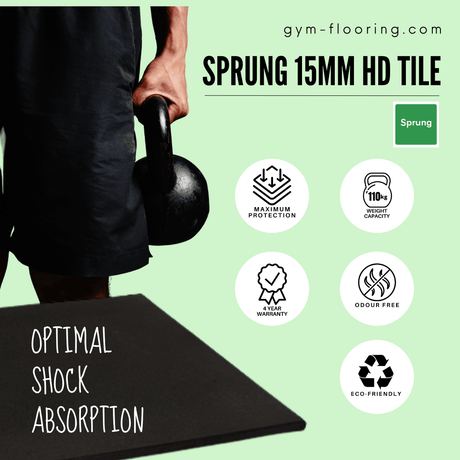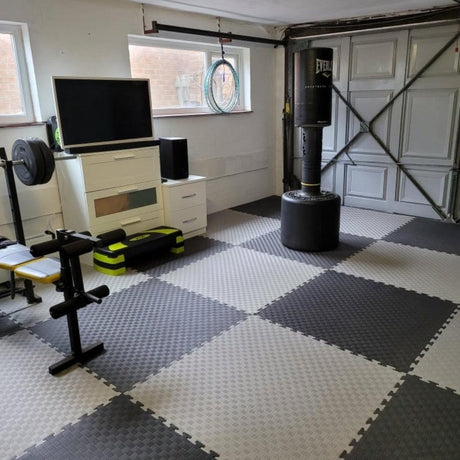Becoming self-employed in the fitness industry can be an incredibly fulfilling journey, but it requires more than just a love for working out. To thrive in this competitive field, you need to lay a solid foundation and equip yourself with the right tools for success. Here are the top six things you need to have in place to embark on your journey as a self-employed personal trainer.
Obtain Proper Qualifications and Certifications
Before you can start training clients, it's essential to have the necessary qualifications and certifications.
Reputable certifications such as those offered by organisations like the Register of Exercise Professionals (REPs) or the Chartered Institute for the Management of Sport and Physical Activity (CIMSPA) are the most recognised in the UK. These certifications ensure that you have the knowledge and skills to provide safe and effective training to your clients. Invest in quality training programmes that cover topics like anatomy, physiology, nutrition, and exercise programming to build a strong foundation for your career.

In the US,, several reputable organisations offer certifications for personal trainers, such as the American Council on Exercise (ACE), the National Academy of Sports Medicine (NASM), and the National Strength and Conditioning Association (NSCA). Using resources such as CSCS Free Practice Test by Trainer Academy is a great way to determine what knowledge you currently have and the skills and qualifications you need to work towards.
Secure Adequate Insurance Coverage
As a self-employed personal trainer, it's crucial to protect yourself and your clients with the right insurance coverage. Public liability insurance and professional indemnity insurance are essential for covering any potential accidents or injuries that may occur during training sessions. Additionally, consider obtaining personal accident insurance to safeguard your income in case you're unable to work due to injury or illness. Working without insurance not only puts you at financial risk but also undermines your credibility as a professional.
Develop a Comprehensive Marketing Strategy
To attract clients and build a thriving business, you need a robust marketing strategy. Start by identifying your target audience and understanding their needs and preferences. Utilize online platforms such as social media, your website, and fitness-related forums to showcase your expertise and reach potential clients. Offer free content, such as workout tips, nutrition advice, or motivational posts, to establish yourself as a trusted authority in the fitness industry. Don't underestimate the power of word-of-mouth marketing - encourage satisfied clients to refer their friends and family to you.
Cultivate Strong Networking Skills
Networking is essential for growing your client base and establishing valuable connections within the fitness community. Attend industry events, workshops, and seminars to meet other professionals and potential clients. Join local fitness groups or clubs where you can interact with like-minded individuals and share your knowledge and experiences. Building a strong network not only opens up new opportunities but also provides support and inspiration as you navigate your career as a self-employed personal trainer.

Commit to Continuous Learning and Development
The fitness industry is constantly evolving, with new trends, techniques, and technologies emerging regularly. To stay competitive and deliver the best possible service to your clients, commit to continuous learning and development. Attend workshops, seminars, and conferences to stay updated on the latest advancements in exercise science and training methodologies. Consider pursuing specialized certifications or advanced training courses to expand your skill set and attract a broader range of clients. By investing in your ongoing education, you'll position yourself as a knowledgeable and trustworthy professional in the eyes of your clients.
Embrace Hard Work and Persistence
Building a successful career as a self-employed personal trainer takes time, dedication, and perseverance. Be prepared to put in the hard work and effort required to establish yourself in the industry. Stay motivated and focused on your goals, even when faced with challenges or setbacks. Remember that success doesn't happen overnight, but with determination and a positive mindset, you can overcome obstacles and achieve your dreams. Stay adaptable and open to feedback, continuously refining your skills and services to meet the evolving needs of your clients.
Likewise, keeping physically active and committed to your own personal fitness goals is important. It communicates to your clients and prospective customers that you take training seriously and lead by example. Having a home gym setup is not only the perfect way to make sure you get your own workouts covered, you can use this space for personal training sessions and is a great way of promoting your business.
In conclusion, becoming a self-employed personal trainer requires careful planning, dedication, and a willingness to invest in your professional development. By obtaining proper qualifications, securing insurance coverage, developing a solid marketing strategy, cultivating strong networking skills, committing to continuous learning, and embracing hard work and persistence, you can lay the groundwork for a successful and fulfilling career in the fitness industry.




















